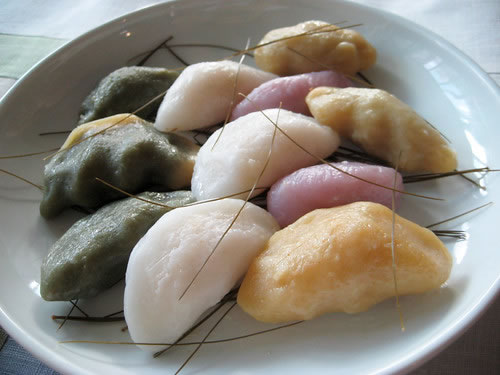
Thanksgiving Day is called Zhong-Qiu-Jie in Taiwan, which means mid-autumn festival which is held on the 15th day of the 8th month of the lunar calendar with a full moon at night. It corresponds to late September or early October of the Gregorian calendar. To celebrate the Zhong-Qiu-Jie in Taiwan, all the family members gather together, share a delicious meal and share news. Children enjoy playing with fireworks that day.

Last year I visited the prison on Zhong-Qiu-Jie. Most Taiwanese were busy and excited to prepare for the family gathering. But when I visited the prison (which is one of my ministries), I could not feel any feeling of excitement of joy but quietness and sorrow from the inmates. Usually, during big festival days, the atmosphere in prison is quiet and gloomy.
This year, I prepared an activity to introduce Koran Chu-Seok, the Korean equivalent of Thanksgiving Day, to the inmates. I wanted to share with them the traditional games, the memorial ceremony for the ancestors, special food, etc. While preparing for the activity, I also had to learn new Chinese vocabularies that are related to Chu-Seok, because I especially wanted to explain the memorial service for the ancestors. During the memorial service, we set a table for our ancestors. On this table, we put pears, chestnuts, and other things. The pronunciation of pear is [li-zi], and the pronunciation of chestnut is [li-zi] too. They sound almost same except their tones. The Chinese has four tones. So if it is read as forth tone (strong accent, the musical scale: Sol to Do) it is a chestnut. And if I read it with second tone (the musical scale: Mi to Sol), it becomes a pear. Gosh! I found it really hard to distinguish the tones separately!

Chuseok, Korea's equivalent to Thanksgiving
Thankfully I was able to explain well the memorial ceremony to the inmates. We made the Song-Pyeon, a Korean half-moon shaped rice cake especially prepared during Chu-Seok. Unfortunately I am not allowed to bring the ingredients so instead we used clay to form into half-moon shaped cakes. Even though, it was not a real rice cake, we had fun making it together, especially when I told them that Koreans believe that those who can make a pretty rice cake will get a pretty daughter! Although we are separated from our own families, I felt we became one big family. We shared our stories, made Song-Pyeon and had fun together. I could no longer feel the loneliness and sorrow.
I believe that God was with us during that time. I pray that the prisoners will not give up and keep up the hope in their darkest moments so that they will realize that they are loved by God and by the people around them.
Originally from South Korea, Columban lay missionary Kim Sun-Hee Maria lives and ministers in Taiwan.


 The Columbans are a society of missionaries, including priests and lay people, who minister to people of various cultures as a way of witnessing to the universal love of God.
The Columbans are a society of missionaries, including priests and lay people, who minister to people of various cultures as a way of witnessing to the universal love of God.